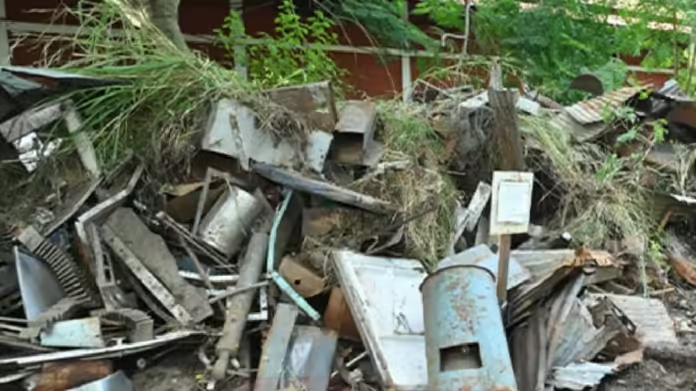The Northeast Frontier Railway (NFR) has made significant strides in its efforts to eliminate scrap and contribute to environmental sustainability. This remarkable achievement comes in the form of generating over Rs 200 crore in revenue from the sale of 40,000 metric tons of scrap. This accomplishment marks a notable milestone in Indian Railways’ ambitious ‘Zero Scrap Mission,’ which aims to maintain scrap-free environments across its establishments and units.
The journey towards this achievement began with a dedicated focus on managing and disposing of scrap materials. NFR has consistently worked to streamline its processes, ensuring that scrap is efficiently handled and sold. By prioritizing the sale of scrap, NFR not only generates substantial revenue but also promotes environmental sustainability by reducing waste and minimizing the ecological footprint.
The sheer volume of 40,000 metric tons of scrap reflects NFR’s commitment to this mission. Each piece of scrap, whether it’s old rail tracks, outdated equipment, or other metal components, represents a resource that can be recycled and repurposed. This proactive approach aligns with the broader goals of Indian Railways, which seeks to adopt practices that support environmental preservation while optimizing operational efficiency.
NFR’s achievement is more than just a financial success. It also highlights the effectiveness of systematic scrap management and the benefits of recycling. The sale of scrap helps in reducing the amount of waste that would otherwise accumulate in landfills, contributing to a cleaner and greener environment. This approach not only supports NFR’s goals but also sets an example for other railway zones and organizations to follow.
Implementing the ‘Zero Scrap Mission’ involves meticulous planning and coordination. NFR has demonstrated exceptional organizational skills by managing the collection, segregation, and sale of scrap materials. This process involves careful monitoring to ensure that all scrap is accounted for and disposed of properly. The revenue generated from this initiative underscores the value of these efforts and reinforces the importance of maintaining efficient scrap management systems.
The success of this initiative also reflects positively on the broader objectives of Indian Railways. By focusing on reducing scrap and enhancing recycling efforts, Indian Railways is making a substantial contribution to sustainable development. This approach not only helps in managing resources more effectively but also aligns with the national goals of reducing waste and promoting environmental stewardship.
In addition to the environmental benefits, the revenue generated from scrap sales provides a financial boost that can be reinvested into improving railway infrastructure and services. This reinvestment helps in enhancing the overall quality and efficiency of railway operations, ultimately benefiting passengers and contributing to the growth of the rail network.
NFR’s achievement serves as a testament to the dedication and hard work of its personnel. The effective management of scrap materials requires a coordinated effort from various departments, including those responsible for operations, maintenance, and environmental management. The success of this initiative underscores the importance of teamwork and collaboration in achieving organizational goals.
The focus on scrap management and recycling is not a one-time effort but an ongoing process. NFR continues to monitor and improve its scrap handling practices, ensuring that it remains at the forefront of sustainable and efficient operations. This continuous improvement reflects a commitment to maintaining high standards of environmental responsibility and operational excellence.
As NFR continues to advance its ‘Zero Scrap Mission,’ it sets a high standard for others to follow. The achievement of generating over Rs 200 crore in revenue from 40,000 metric tons of scrap is a significant milestone that showcases the potential of effective scrap management. This success story serves as an inspiration for other railway zones and organizations to adopt similar practices and contribute to a cleaner, more sustainable future.
NFR’s achievement in generating substantial revenue from scrap sales underscores its commitment to the ‘Zero Scrap Mission’ and environmental sustainability. By effectively managing and recycling scrap materials, NFR not only contributes to a cleaner environment but also supports the financial and operational goals of Indian Railways. This accomplishment highlights the importance of continued efforts in scrap management and sets a benchmark for others to aspire to in the pursuit of sustainability and efficiency.




